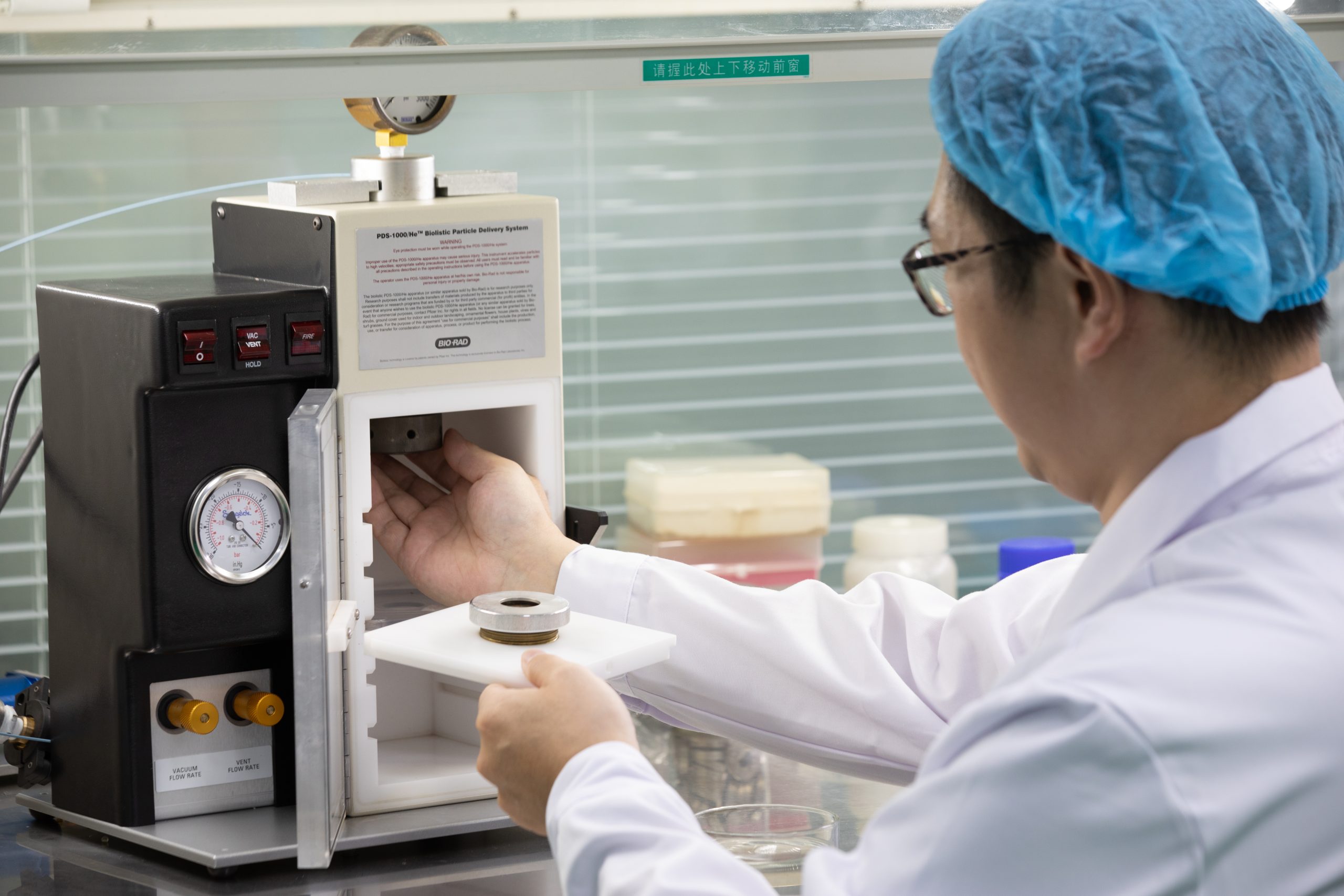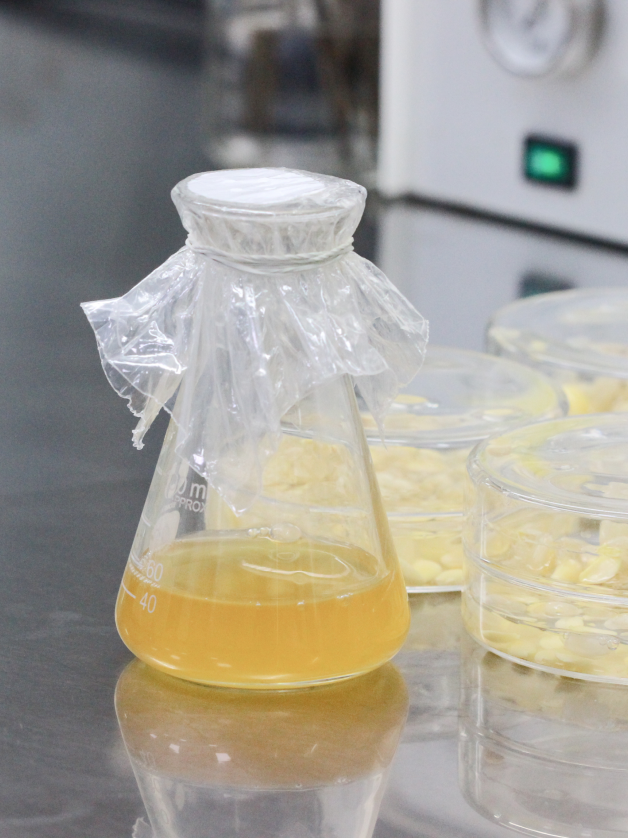

We use biolistic-mediated gene gun delivery systems for the generation of transgene-free genome-edited plants. We can successfully deliver DNA, RNA, or protein complexes to directly recover transgene-free edited plants. We have optimized our bombardment methods for many species, including rice, wheat, corn, oat, foxtail millet, peanut, ryegrass, alfalfa, barley, and more.

We developed many Agrobacterium-mediated delivery approaches for the generation of genome-edited plants. We can also successfully recover transgene-free edited plants under certain conditions. We have optimized our methods for many species, including rice, wheat, corn, soybean, potato, oats, foxtail millet, canola, peanut, alfalfa, tomato, lettuce, pepper, pumpkin, cabbage, sugar beet, mung bean, barley, and more.





Precise single base substitutions, small DNA fragment insertions and deletions at a programmable genomic site.
Programmable gene-size insertions in cellular genomes.
Gene stacking for introducing multiple traits.